Local representatives of province 2 face difficulty in delivering services at local level because legal documents are only in Nepali.
-Gopal Gartaula : Centre for Investigative Journalism-Nepal
Bina Devi Sah is vice chairperson of Chandranagar Rural Municipality in Sarlahi district.
An 8th grader, she won elections after her party, Rastriya Janata Party, fielded her as its candidate. Through the polls, she rose from a housewife to people’s representative. But she has no idea about her responsibility as the vice chairperson of the rural municipality. Bina Devi’s Maithili(language) is excellent, but she struggles with her Nepali, the official language. This has hampered her service delivery at work.
When I visited her at her office on March 27, 2018, she was mulling over a copy of Nepal’s Constitution. It appeared as though she was frustrated after many attempts at understanding the document.
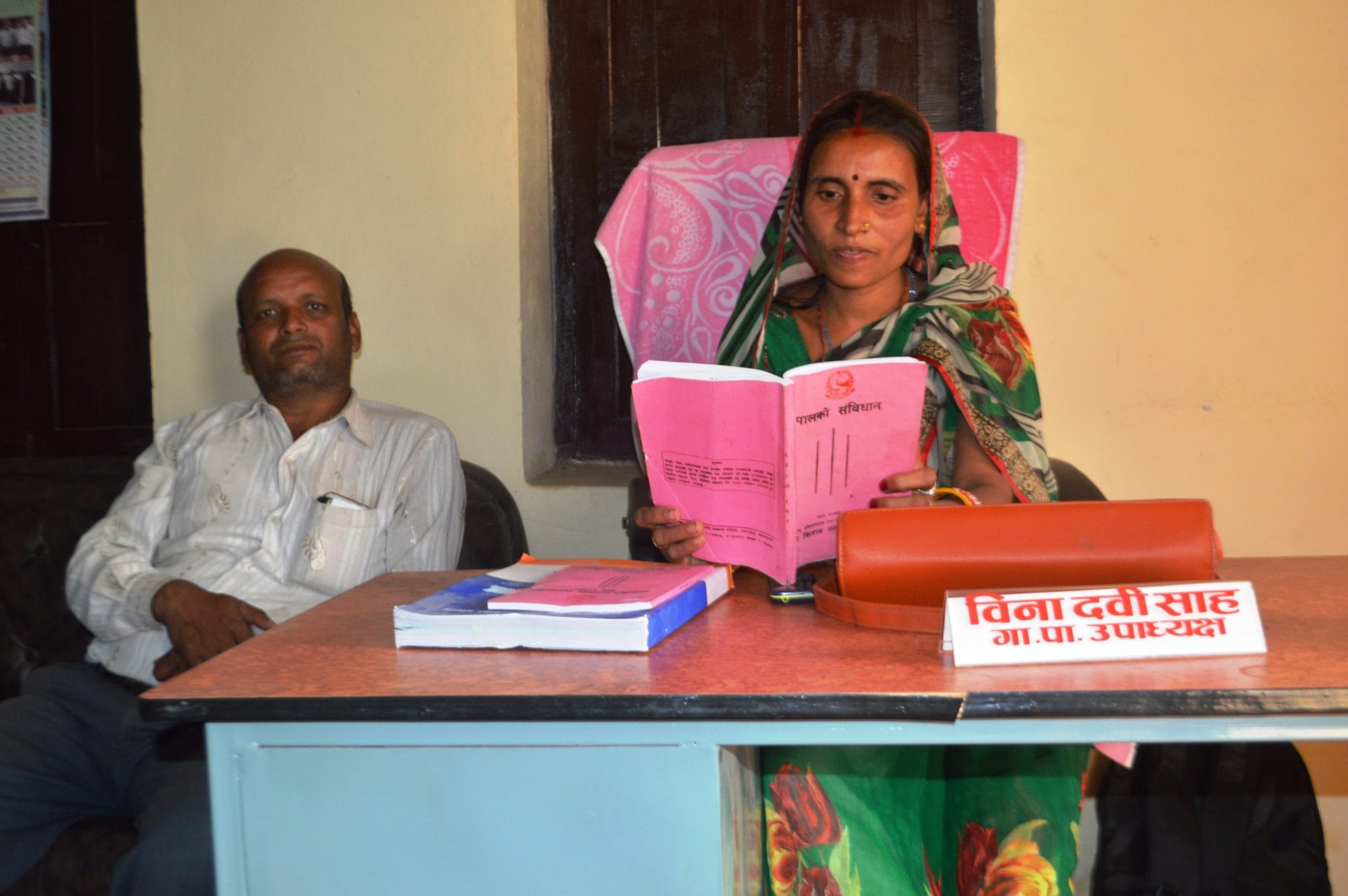
Bina Devi Sah with her husband Ram Chhabilal Sah at the office of Rural Municipality. Photos: Gopal Gartaula
“What’s going on?” I asked her.
“I am trying to understand the text of the Constitution,” she said.
I asked about her role as a vice chairperson of Rural Municipality and the tasks she’s performing at the moment. She couldn’t answer it. She then called her husband Ram Chhabilal Sah and asked him to come to her office. He arrived in 10 minutes and sat beside her. “She doesn’t know how to answer in Nepali. I am here to help her,” he said.
Though she’s been studying the Constitution, Local Government Operation Act and about her jurisdiction, she said it was difficult for her to understand the documents. “I don’t know so many things, but I will learn one by one,” she said in her native Maithili language.
Sita Devi Raya is a member of ward one of Chandranagar Rural Municipality. She only understands Maithili and doesn’t know about her role, responsibility and rights as a ward member. “I don’t know anything,” she said in Maithili. Even after elected as ward member nine months back, she hasn’t been trained on how she should carry out her responsibilities. Due to language barrier, she struggles to understand the laws.
Bintuniya Devi, who is Sita Devi’s neighbor, is also a ward member. She doesn’t understand Nepali language. She too is oblivious to rules and regulations of local government due to language barrier. She would sign on the decision of ward office meeting without reading it. “We sign after people who know the language tell us what’s in it,” she said.
Ram Narayan Mahato is chairperson of ward -2 of Chandranagar Rural Municipality. He understands Nepali, but cannot reply. He is not familiar with several terminologies in Local Government Operation Act. He find words such as Tabela (Stable), Dalan (courtyard), Kholakharka (Stream and pastureland) in the Act hard to understand. “It concerns me when I don’t understand the meaning,” he said.
He said that the consumer committee members also doesn’t understand the language, which has created problems. “We haven’t been able to sign contracts with consumer committee because of this,” Mahato said. Consumer committees are responsible for the construction of sewages, roads and canals at local level.
According to Nepal’s Constitution, all mother tongue languages spoken in Nepal are national languages while Nepali is the official language. Because the laws are in Nepali and government offices conduct their business in the language, non-Nepali speaking local representatives and beneficiaries have suffered from this provision. “Who will solve this problem? We are finding it hard to tackle this,” said Ram Narayan. Due to lack of confidence in the language, it had been tough for local representatives to earn people’s faith, he added.
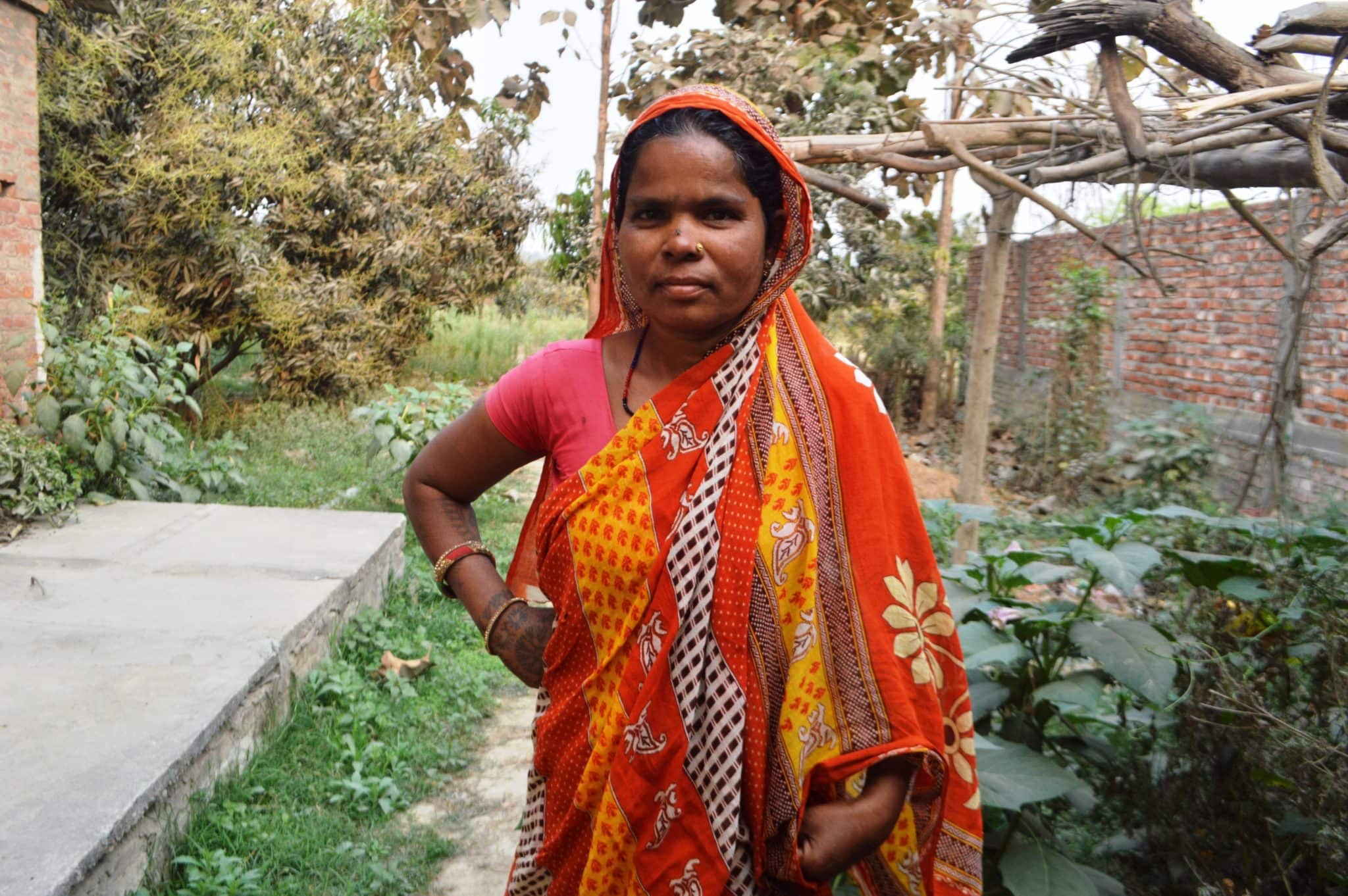
Lalpadi Devi Majhi
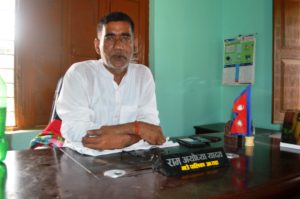
Bachchhe Ram Yadav
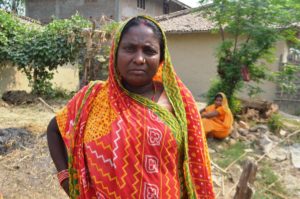
Bintuniya Devi Raya
Basbariya Rural Municipality of Sarlahi is home to 23568 people including ethnic groups of Yadav, Teli, Kalwar, Dussad, Dhobi, Chamar, Halwai, Muslim, Dom, Rajput, Bhumihar, Tatma, Bhediyar, Kumhar, Kucmi, Dhunuk, Nuniya, Win, Malah, Lohar, Sonar, Koeri, Musahar and Brahmin communities. Here, only about 100 people speak Nepali language as a mother tongue, according to Ram Prakash Raya, an officer of the Rural Municipality.
Shiya Shankar Thakur, an officer of Dhankaul Rural Municipality of Sarlahi district, echoed Raya’s experience. Thakur said they faced problems due to the language barrier while dealing with local consumer committees for development schemes. “Many villagers who work on the committee cannot speak and understand Nepali language well,” he said, “Some local representatives are also not conversant in Nepali language.”
Lalpadi Devi Majhi is the elected as a member of ward- 2 of Chandranagar. She cannot speak in other languages except Maithili. So she doesn’t know what her responsibility as a ward member is. She attends the ward meetings, signs on the minutes and returns home. But she is oblivious to the content of documents that bears her signature.
Nanda Lal Mahato is chairperson of ward-3 of Basbariya Rural Municipality of Sarlahi district. He is fed up with the paperwork at the Rural Municipality, which is in Nepali language. He said many beneficiaries who came to his office couldn’t understand the language, but were forced to consult the documents written in Nepali. “All the documents such as birth certificate, the death certificate, the marriage certificate, the migration document, recommendations for scholarship should be prepared in Nepali language,” he said. “No matter what is written in the document, they have to accept it.” Ward-3 is home to ethnic groups of Yadav, Mahato, Sahani, Chamar, Dusad and Kalwar. Very few of them understand Nepali language.
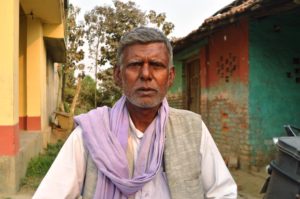
Ram Narayan Mahato
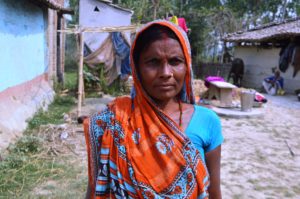
Sita Devi Raya
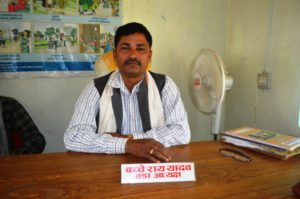
Bachchhe Ram Yadav
The population of Ward-6 of Chandranagar Rural Municipality is 6700. The majority of people come from ethnic groups such as Kapar, Majhi, Mallha, Bin, Kanu, Kurmi, Nuniya, Baniya, Barahi, Teli and Sudhi. Very few understand Nepali language, according to ward chairperson Ram Chandra Kapar.
Bachche Raya Yadav, ward-1 chairperson of Chandranagar Rural Municipality, shared a bitter experience of organizing a program on agriculture in which materials were printed in Nepali language. He said, “The pamphlet was in Nepali language, the villagers could not understand. Later, we facilitated interpreters so that participants could understand.” He said, “Problem is not just in books on law, but ranges from communicating message of government materials on agriculture, forest and animals to farmers as well.”
According to him, the public awareness materials on family planning, education for girls, tree plantation are also in Nepali language which doesn’t make any sense to the locals due to language barrier.
Local representatives have sought solutions to the problem after lack of Nepali speakers hampered their delivery. Ram Ayodhya Yadav, chairperson of Basbariya Rural Municipality of Sarlahi, said they were translating the necessary documents. “We’re thinking of translating crucial government laws and forms so that most locals understand the documents.” Chandranagar Rural Municipality chairperson Mahendra Mahato has also considered measures similar to the one initiated by Ram Ayodhya to overcome the language barrier.
Ever since Jung Bahadur Rana promulgated Muluki Ain (Civil Code) 165 years ago, all laws in Nepal are in Nepali language. According to census of 2011, Nepal is home to 125 ethnicities, who speak 123 languages. But all laws are published in Nepali language, which has made it difficult for non-Nepali speakers. Intellectuals of Mahesh community has complained that the federal government had turned a blind eye on the issue.
According to the author Chandra Kishore, the government should address the plight of Madhes, who suffer due to lack of understanding Nepali language. “It is good to know more than one language,” he said, “But it is not easy for everyone. So laws must be published in languages that are common in certain areas.”
Laws should be translated into their native language because lack of understanding Nepali has made it difficult for people of province 2 to get justice, according to the federal expert and advocate Sunil Ranjan Singh. “It is unfortunate that one language is dominant in a country with such a linguistic diversity,” he said. “Creating government documents in their native language gives people a sense of ownership.”
Dipendra Jha, attorney general of province-2, said it was a matter of concern for the marginalized communities that laws and government information are not available in their languages. “We are discussing to have the laws translated into local language,” said Jha, who is also the legal advisor of the provincial government. “We will have something to show one year later.”
The Ministry of Federal Affairs and Local Development is unaware of the problem faced by the people of province-2 . Suresh Adhikari, spokesperson of the ministry, said, “We have not thought about this yet. I will discuss this issue with my colleagues.”



